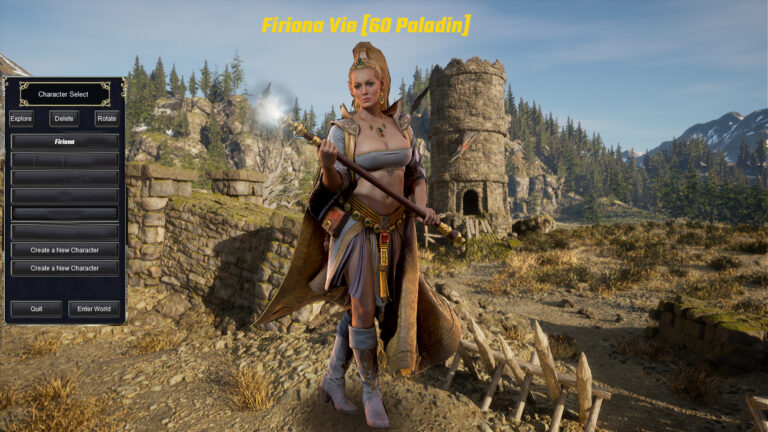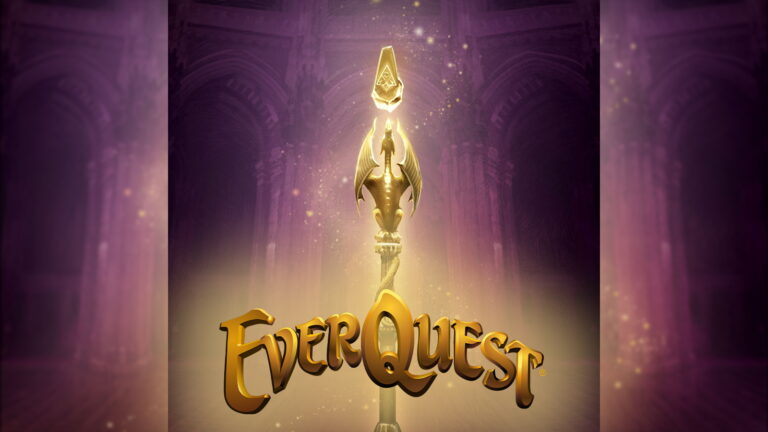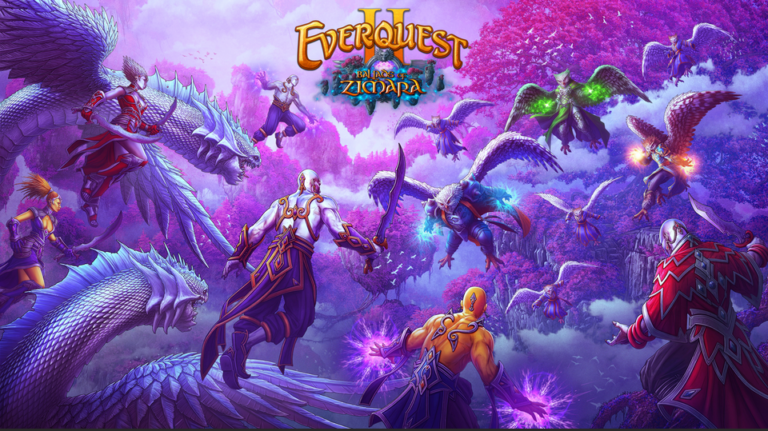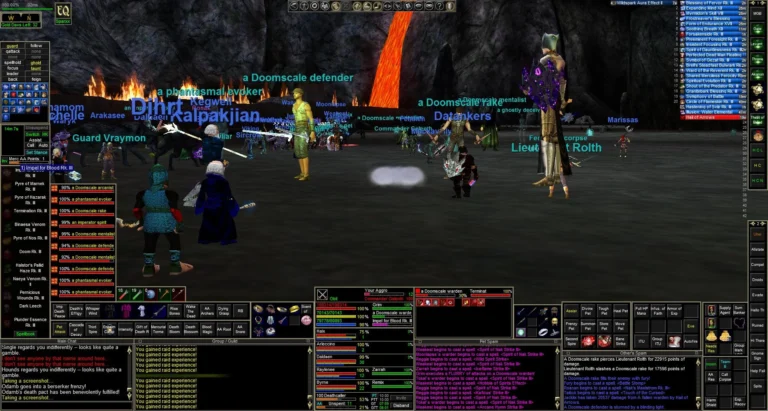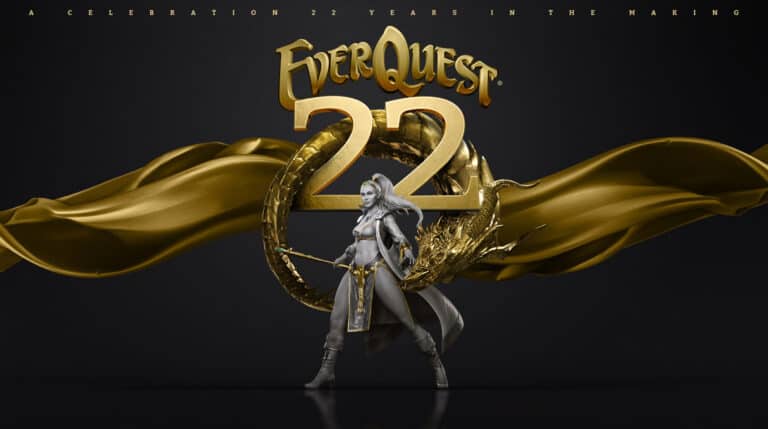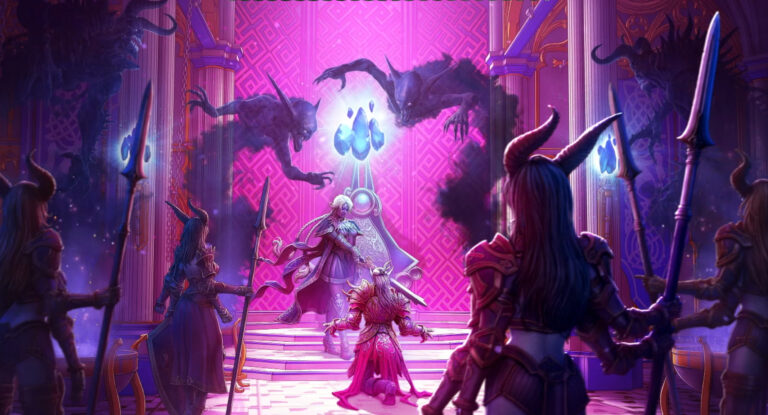Daybreak’s Dilemma: Will the Year of Darkpaw Reignite EverQuest’s Flame or Snuff It Out?
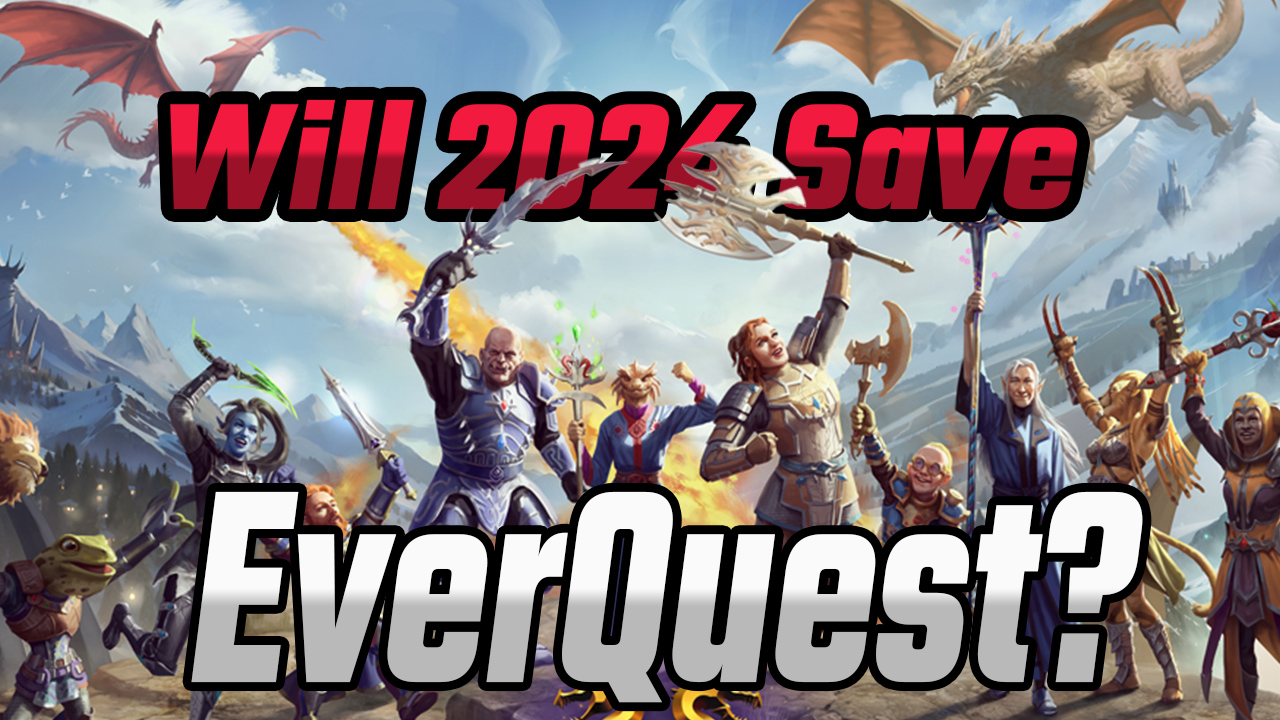
Will the “Year of Darkpaw” be a turnaround year for the EverQuest franchise or just more of the same?
With Daybreak Games heralding 2024 as “The Year of Darkpaw,” commemorating significant anniversaries for EverQuest and EverQuest II, expectations within the community are soaring. Yet, as we stand on the threshold of what is promised to be a landmark year, questions loom large: Will this truly herald a new era for EverQuest with great new content, or perhaps even the unveiling of a new EverQuest game? Or will the celebrations ultimately culminate in more of the status quo, echoing past years’ offerings?
The financial context of 2023 adds a critical layer to these inquiries. Daybreak Games, under the umbrella of Enad Global 7 (EG7), reported a challenging year, marked by declining revenues and increased pressures across their portfolio. Despite initial optimism following leadership changes and promises of strategic investment in the franchise, the reality painted by the year-end financials suggests a more cautious stance moving into 2024. This conservative approach, underscored by the new CEO’s familiarity with the EverQuest franchise, raises questions about the company’s willingness and capacity to innovate and invest in the types of content and experiences that the community craves.
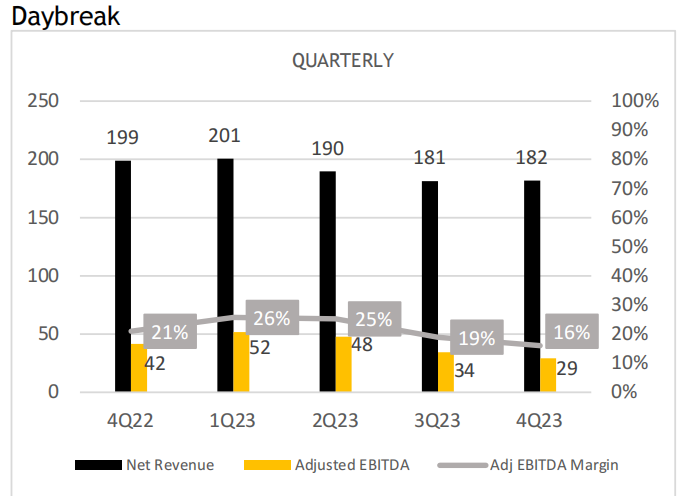
The financial struggles of 2023, characterized by a noticeable decrease in engagement and the impact of inflationary pressures on operational costs, have set the stage for a pivotal 2024. With the gaming industry at large facing economic headwinds, EG7’s decision to adopt a conservative outlook for the year ahead, focusing on maintaining the status quo rather than pursuing aggressive investment or innovation, might be pragmatic from a business perspective. However, this strategy risks disappointing a community that is yearning for meaningful change and rejuvenation of the EverQuest universe.
Driving Away the Playerbase
Daybreak not giving the players what they want is not the only problem facing the veteran MMOs. The issues of Krono, bots, and duping within EverQuest represent a trifecta of challenges that have, over time, spurred a segment of the player base to seek refuge in private servers. Krono, intended as a means for players to trade subscription time in-game, has inadvertently fueled economic imbalances and incentivized botting and duping practices, detracting from the authentic gameplay experience. These practices undermine the sense of community and fair play that are fundamental to MMORPGs, leading some players to private servers where they believe these issues are more effectively managed or are less impactful on the game’s economy and overall enjoyment.
The allure of classic EverQuest content and the desire for a nostalgic gaming experience has led a significant portion of the player base toward private servers like Project 1999, Project Quarm, and the emerging EQ2Emu. These platforms offer a glimpse into what many players believe the essence of EverQuest should be, focusing on authentic, classic experiences that resonate deeply with veteran players and newcomers drawn to the genre’s roots.
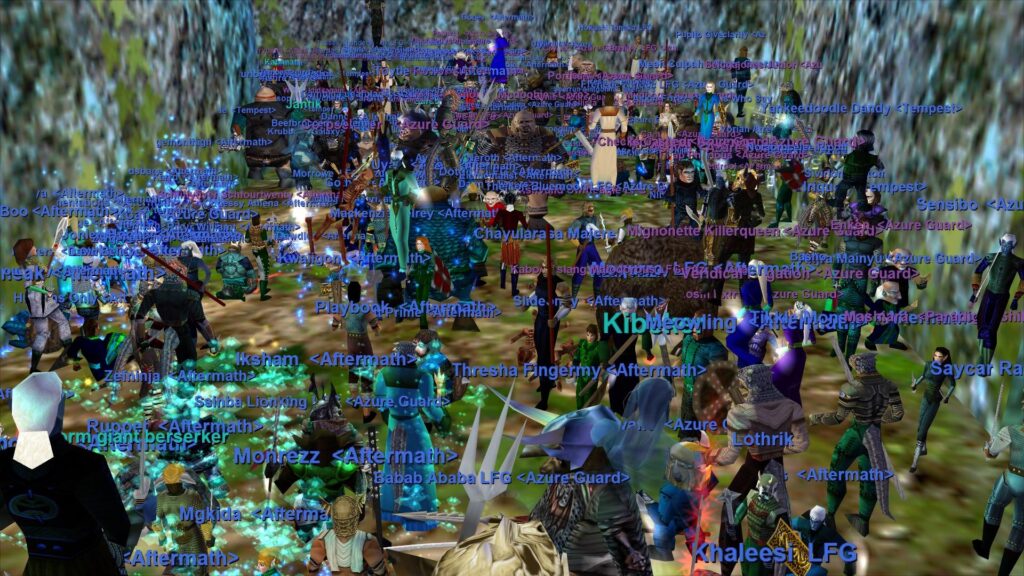
Project 1999 has established itself as a bastion for those yearning for the EverQuest of yore, operating successfully for years and offering a stable, true-to-original gameplay experience that harks back to the game’s golden age. Its continued popularity underscores a persistent demand for classic MMORPG experiences, unencumbered by modern monetization and gameplay mechanics that some feel have diluted the original spirit of the game.
On the other hand, Project Quarm has emerged as a newcomer to the scene but has quickly gained traction among players seeking the Planes of Power era experience within a true-box context. This indicates not just a longing for the content of EverQuest’s early days but also a preference for a playstyle that eschews the multi-boxing culture prevalent on official servers, promoting a more authentic and community-centric gameplay environment.
EQ2Emu, though still in its infancy, represents a burgeoning effort to capture the same magic for EverQuest II that Project 1999 did for the original game. As it progresses through early alpha and testing phases, there is palpable excitement about the potential for this project to offer a haven for players disenchanted with the current direction of EverQuest II or simply seeking to recapture the game’s early days. The progress of EQ2Emu is closely watched by the community, with many predicting it could eventually siphon off a significant portion of EverQuest II’s player base, much like Project 1999 did for the original.
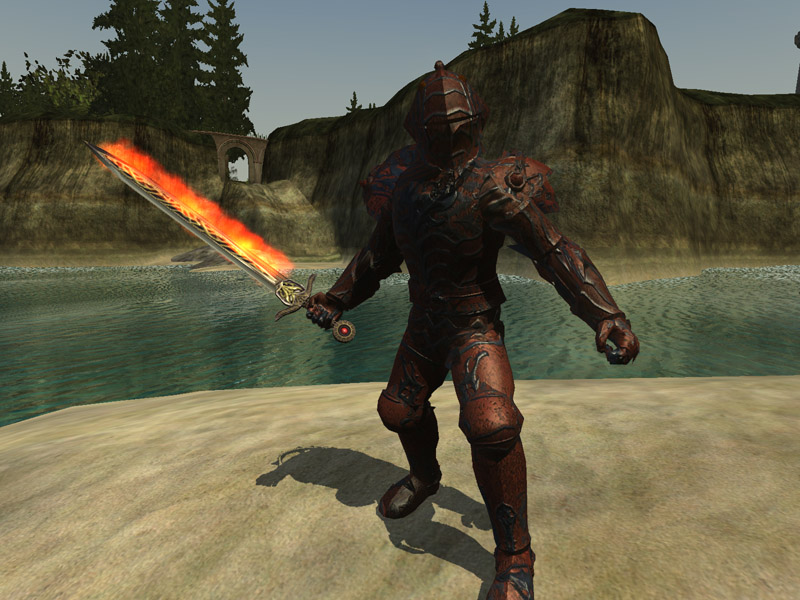
The drift towards these private servers signals a broader trend within the EverQuest community—a search for authenticity and a return to the game’s roots, free from the influences that have steered the official servers in directions some long-time fans find unpalatable. While Daybreak Games faces the challenging task of modernizing and expanding the EverQuest franchise to attract new players, the success of private servers like Project 1999, Project Quarm, and the promising development of EQ2Emu highlight the enduring appeal of the classic MMORPG experience. This dichotomy poses a pivotal question for Daybreak: How can they reconcile the evolving demands of a modern MMORPG with the deep-seated nostalgia and expectations of their veteran player base?
Answers from the Developers
The dialogue between EverQuest’s developers and its community during a recent AMA has illuminated a significant challenge facing the venerable MMORPG: balancing the nostalgia of its legacy with the practicalities of modern game development. The developers’ responses to questions about revisiting old zones and classic content reflect a nuanced understanding of their game’s longevity and the constraints they operate under.
The developer known as Absor’s comments reveal a stark reality: adding new quests or content to the original zones is seen as a “lost cause” not due to a lack of desire but because of the practical implications of resource allocation. With a finite amount of development time and budget, the team must prioritize updates that impact the greatest portion of the player base. Given that the majority of active players are engaging with endgame content, the return on investment for updating low-level areas is perceived as minimal.
This rationale, while understandable from a development standpoint, strikes a dissonant chord with a segment of the EverQuest community. The allure of EverQuest has always been steeped in its rich history and the deep connections players have to its world. Nostalgia, for many, is not just about replaying old content but about seeing beloved areas of the game world thriving and relevant.
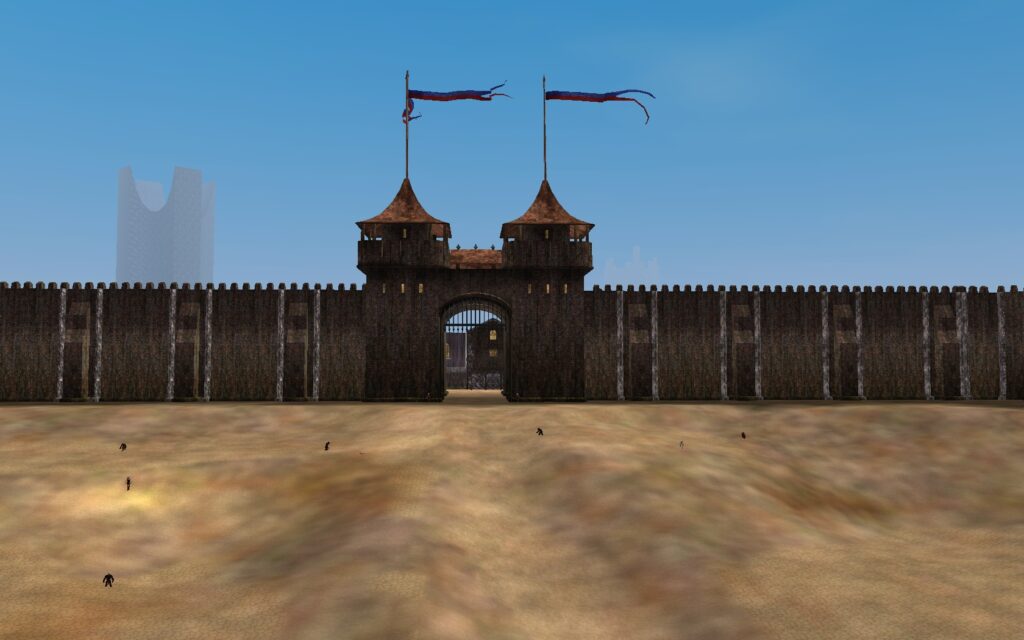
The juxtaposition of Daybreak Games’ stance with the thriving ecosystem of private servers, such as Project 1999, highlights a complex dynamic. These volunteer-run servers not only manage to maintain classic versions of EverQuest but also sometimes introduce new content or events within those constraints, serving a dedicated niche of the player base yearning for the “classic” experience.
This dichotomy raises questions about what could be possible if Daybreak Games leveraged similar passion and creativity within the constraints of their resource limitations. The suggestion is not to divert all attention to reviving old zones but to explore creative solutions that might bridge the gap between the nostalgic appeal of EverQuest’s vast history and the evolving nature of its current state.
EverQuest 3?
Amidst the swirl of speculation and anticipation that is “The Year of Darkpaw,” one question stands above the rest: Is the announcement of a new EverQuest game on the horizon? The idea, once seemingly relegated to the realm of impossibility following the disappointment surrounding EverQuest Next, has resurfaced as a possibility. Yet, this prospect is fraught with complexities, not least of which is whether Darkpaw Games, with its admittedly limited resources, could feasibly undertake such an ambitious endeavor. Moreover, there’s the existential question of what the EverQuest fanbase truly desires. Is the call for a brand new installment genuine, or does the heart of the community lie with a yearning for the classic content that first cemented their love for Norrath?
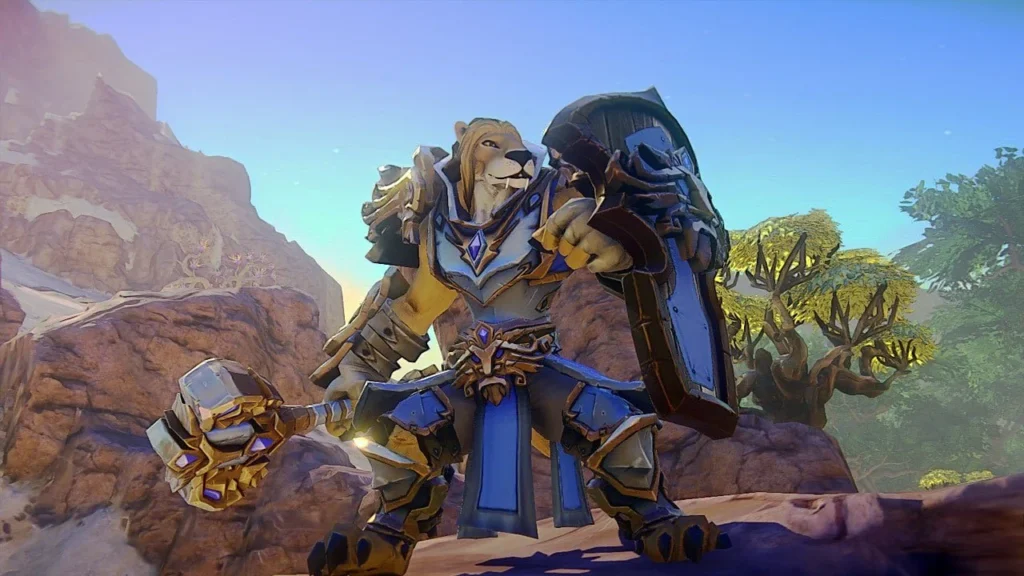
In contemplating the potential of a new EverQuest game, concerns naturally arise regarding the direction such a project could take. The gaming landscape has evolved significantly since the franchise’s inception, with trends leaning heavily towards models that some players view skeptically, such as pay-to-win mechanisms or mobile-focused adaptations. The apprehension that a new EverQuest title could fall into these categories is not unfounded, given the industry’s prevailing winds. Moreover, there’s a profound sense of nostalgia and reverence for the original EverQuest’s legacy—a legacy crafted by developers who, for the most part, are no longer with the studio. This change in guard raises valid questions about whether a new game, devoid of the original creators’ direct influence, could truly embody the spirit of EverQuest that fans have come to cherish.
The dilemma facing Darkpaw Games and the broader EverQuest community is multi-faceted. On one hand, the allure of exploring new horizons with a fresh installment is undeniable. It presents an opportunity to redefine what EverQuest means in the contemporary gaming era, potentially attracting a new generation of players while offering veterans a novel way to experience Norrath. On the other hand, the specter of deviating too far from the franchise’s roots—venturing into realms that prioritize monetization over authentic gameplay—casts a long shadow over the excitement such an announcement might otherwise generate.
Fippy Fest: A Pricy Promise – Will June 14 Unveil the Future of EverQuest?
As the EverQuest community stands on the precipice of “The Year of Darkpaw,” one question looms large. Will this year merely echo the patterns of the past—introducing a new Time-Locked Progression server, rolling out expansions, and expanding microtransactions in a bid to bolster Enad Global 7’s coffers? The shadow of botting and duping, threatening to drive the loyal player base towards the welcoming arms of private servers, potentially accelerating the franchise’s decline.
Yet, amidst these apprehensions, there lies a thread of anticipation. The question isn’t just whether “The Year of Darkpaw” will serve up the expected fare, but whether it might also deliver surprises that rekindle the original thrill of exploration and adventure that EverQuest once offered. The community is at a crossroads, yearning not just for new content but for meaningful experiences that honor the legacy of Norrath while charting a course towards an exciting future.
As the EverQuest community gears up for the much-anticipated and controversial Fippy Fest, with its eyebrow-raising $1,499 price tag for in-person attendance, all eyes are on June 14th. This day not only marks the commencement of the festival but also stands as a potential turning point for the franchise. Will this high-stakes event provide the answers and reassurances the community seeks? Beyond the festivities, panels, and exclusive interactions promised, there lies a deeper question of value—both in terms of financial cost and the symbolic commitment to the EverQuest legacy. Fippy Fest is not just a celebration; it’s a litmus test for the future of Norrath, a moment to gauge the pulse of a community at a crossroads. As Friday, June 14 approaches, the anticipation builds: will Fippy Fest deliver on its promises, and will it offer a clear vision for what lies ahead in the Year of Darkpaw?


